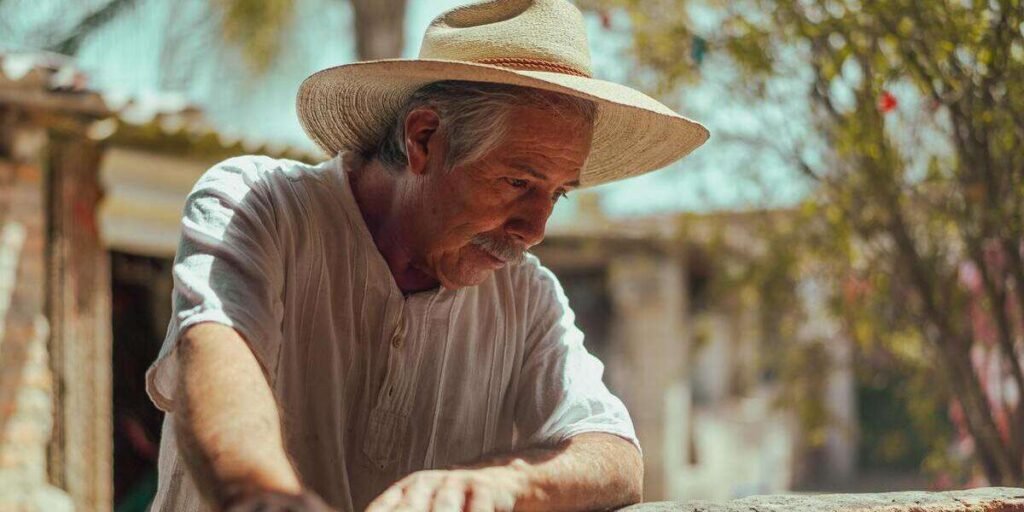
Depressed Elderly People Have a High Suicide Rate! Understand the Reasons Why Seniors Commit Suicide
What do we imagine about people over 65? Treating your grandson with joy? Volunteer? Passionate about politics? Or are you dictating the lives of young people? It feels like both praise and criticism, but in fact many elders do not live with such a sense of existence. When people get old, they may not be able to enjoy their old age in peace, and they are more likely to be depressed and have suicidal tendencies.
The suicide rate of the elderly group over 65 years old has always been higher than that of other age groups, showing a trend that the older the age, the higher the suicide mortality rate. Why exactly does this result occur? The following will take you to discuss together.
The elderly have a higher suicide rate
Suicide rates in older people in England and Wales have declined in recent years. However the suicidal inclination is still higher then other group. The challenge, therefore, is to sustain this downward trend. Better understanding of the current methods of suicide used by older people may inform strategies to sustain this decline.
Reasons why old people want to commit suicide
1.Mental illness
Data shows that most elderly people are at a dead end and the proportion of depression is as high as 44-87%. This situation is even more pronounced among those over 75 years old. Foreign studies on retired senior communities also point out that the proportion of residents who commit suicide and suffer from depression is higher than that of young people. indicated that mental illness (especially depression) is an important factor in predicting suicide in the elderly.
2. Chronic illness and world-weariness
Physical health and mental health interact with each other. If the physical pain is unbearable, the mood will be affected and you will not be happy. Elderly people suffering from various illnesses such as cancer or eye diseases that cause severe visual impairment will have higher suicide rates. In particular, cancer patients are very susceptible to depression and have a high suicide rate. Elderly people suffering from dementia will not only suffer from emotional instability due to personality changes and delusions, but also the deterioration of their memory, thinking, and language abilities, which will also make patients feel that they are gradually disabled, which can easily push them to a dead end.
Physical discomfort makes people feel hopeless. Research shows that 36% of elderly people commit suicide because of “chronic diseases.” Being chronically ill is really a big test for the elders.
3.Absence of the other half
Marriage can be said to be a life-saving talisman for the elderly, because widowed, single, and divorced elderly people have a higher risk of suicide, and men are the most likely to commit suicide.
Statistically speaking, although girls are generally more likely to have suicidal intentions, once men have suicidal thoughts, they are often determined to die and are less willing to seek help from outsiders, making them more likely to cause regrets. In the absence of a male partner, the risk of suicide is three times higher. Male elders have the highest suicidal intention and suicide mortality rate within one year of their spouse’s death.
4.Living alone
The social support system for elderly people living alone must be weaker than that of their elders who are accompanied by others. Human beings are social animals and lack social life. It will be difficult to relieve the loneliness and loneliness. If it develops into a melancholy mood, it is easier to have suicidal thoughts.
Elders who live alone have no one around them, so if they are really upset, they are less likely to be discovered and rescue is more difficult. Therefore, their suicide rate is higher than that of other elderly groups.
5.Interpersonal discord
Relationships give us warmth, but they are also a source of stress. Arguments with friends, family, or loved ones are actually one of the main causes of suicide for people of all ages.
According to the overall analysis published by the Suicide Prevention Communication Network at the end of 2019, “emotional/interpersonal relationships” accounted for 46.5% of the major causes of suicide. Studies have also found that up to 20% of elderly people choose to commit suicide because of “family problems.” Scholars believe that when the responsibility for elderly care falls on the shoulders of family members, the elders are likely to feel that they are a burden to the family, thus triggering the “elegy of long-term care” that ends in suicide. This is also consistent with the aforementioned “long-term illness and world-weariness” ” closely related

The high suicide rate among the elderly breaks the existing concept
After retirement, you can have financial freedom and do whatever you want. For young adults who are still working hard in society, this expectation may be the motivation to support everyone’s hard work. But in fact, the high suicide rate among the elderly is a bloody reminder that as we get older, physical health declines, relatives and friends are separated, interpersonal relationships are reorganized, etc., the challenges and barriers presented are actually greater than those when we were young. Nothing less! It can be said that it is very difficult for the silver-haired people to enjoy their old age in peace.
Therefore, it is not easy to care for the elders in the family. You must take good care of them physically and mentally, and you must not ignore them mentally. It is easy for ordinary people to rationalize the mental problems of the elderly because of their physical illness or pain and disability. They mistakenly believe that it is natural for them to feel depressed when their body is sick, and they miss the opportunity for treatment.
The older people get, the more stubborn and irritable they become like children. The wisdom of the ancients, on the one hand, has observed the symptoms of dementia that drastically change the personality of the elders; on the other hand, it also reminds us that when facing the elderly, we must treat them with the same patience and gentleness as children, in order to find out their inner knots and prevent suicide. Thoughts turn into actions.












